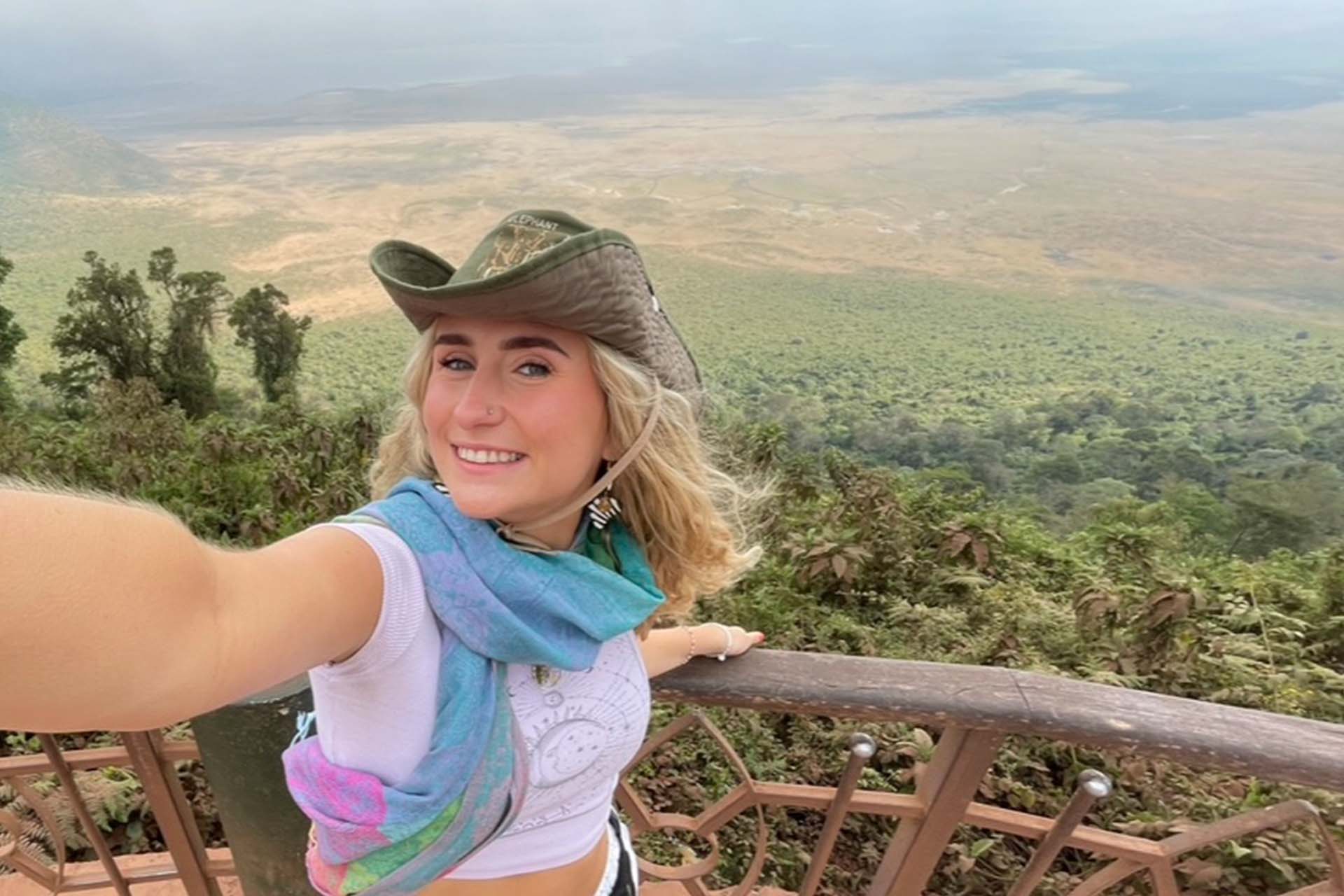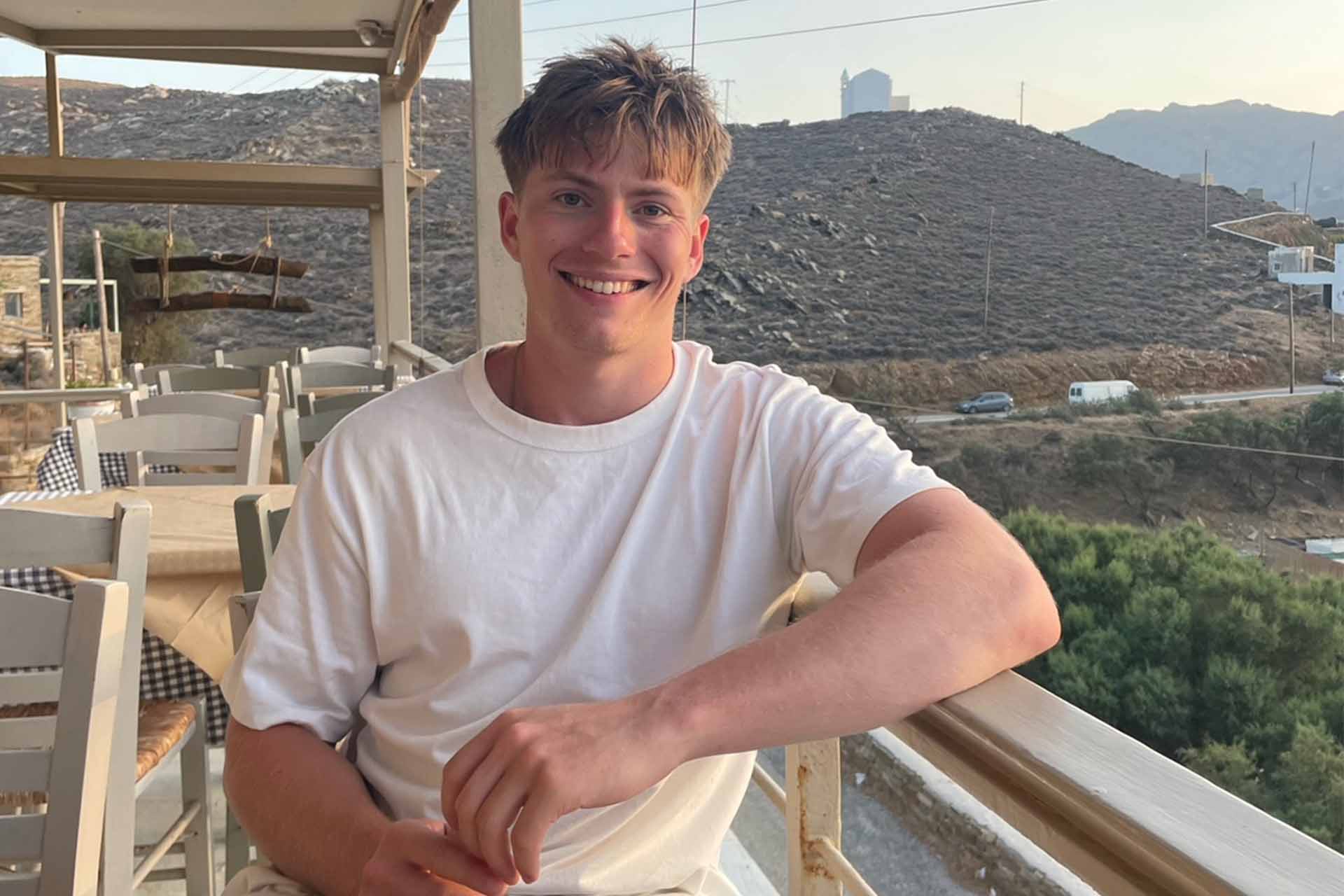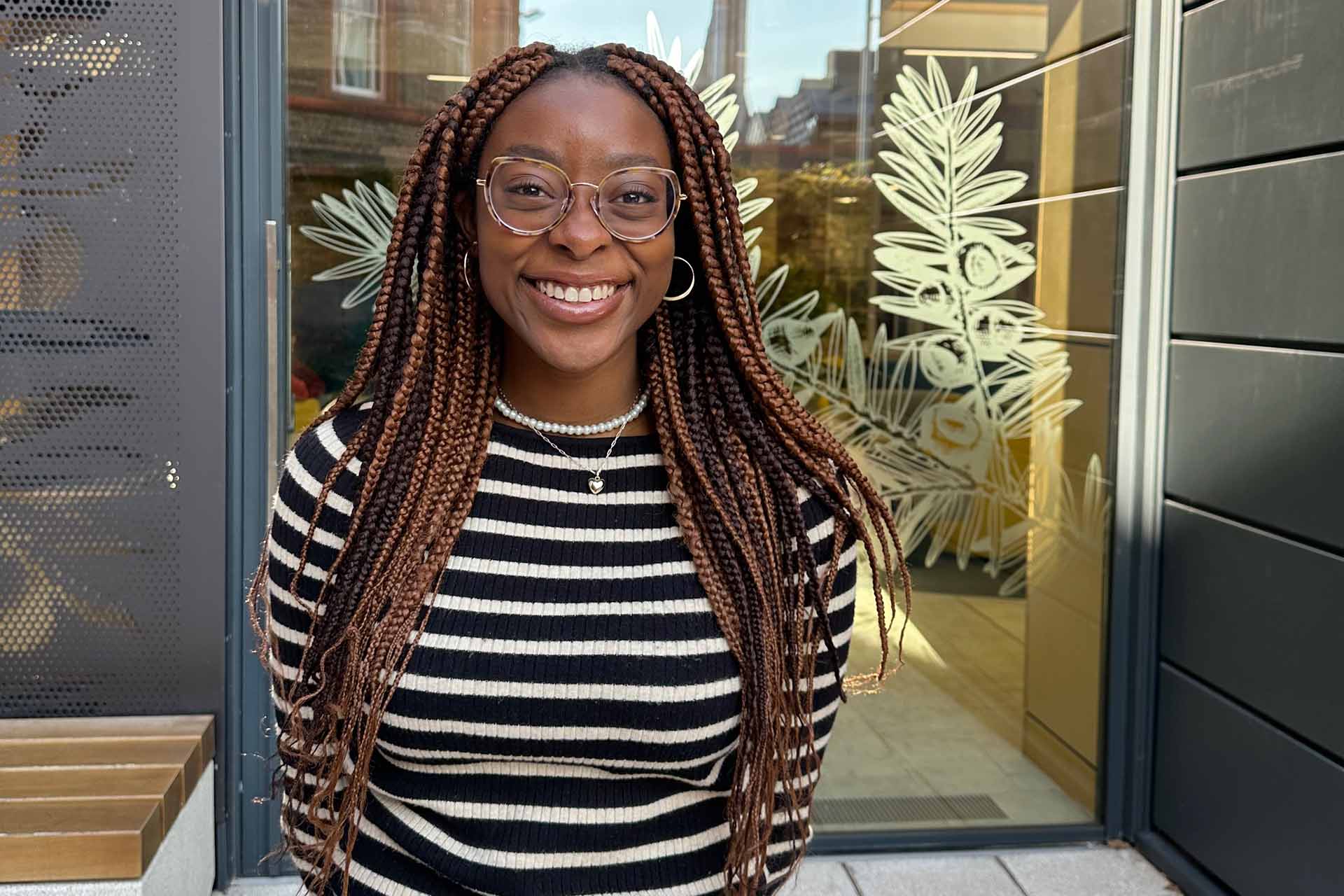
Huge congratulations to Beth Harrison, Joe Moody and Emelia Bature who have received a prestigious Wolfson Foundation Intercalated Award to support their research degrees this year.
Each year the School of Medicine is invited to nominate up to 3 outstanding Liverpool student doctors, each with a quality scientific project, for consideration for the award. Let’s hear how they will be putting the funding to good use.
Beth Harrison
MRes Clinical Sciences, Liverpool Womens Hospital
I did not always know I wanted to intercalate, however, I got the opportunity while on placement in third year to spend 4 weeks at the Womens and saw the research and trials that were going on while I was there.
Women's Health has always been a huge interest of mine, specifically benign gynaecological disorders that impact the day to day of women’s lives, that don’t seem to have much treatment. This covers conditions like endometriosis, fibroids and adenomyosis where the only real NICE approved treatment is hormonal contraception, that not everyone can use, or wants to use.
After seeing the gap in knowledge and the research going on into this area at the Womens, I was so excited by the opportunity to assist in getting these women some answers.
I reached out to the head of the MRes course, who put me in contact with doctors at the Womens hospital. I am working with the amazing Professor Hapangama and her team to understand the relationship between fibroids and their effect on the myometrial vasculature and contractility, and how this may relate to adverse outcomes seen in these patients like heavy menstrual bleeding and post-partum haemorrhage.
I have now completed a month of my master's and I am enjoying every second of it so far. It is really rewarding and exciting to have your own project and your own responsibilities. We have weekly lab meetings to discuss what we have been up to in the week and what we aim to do next week.
I have just been trained in consenting patients for research and aim to work with one of the PhD students to perform mass spectrometry on myometrial and fibroid biopsies.
It has been so exciting to delve deeper into an area of medicine that interests me the most, and it is very refreshing to be able to have the time to really explore just one topic area. I am really excited to work across different areas of healthcare and with lots of different people.
I am working both at the Womens, gaining consent from patients for research and then going into theatres to collect samples. I will get the opportunity to culture the tissues and then work in the labs opposite the Royal with a researcher to perform mass spectrometry to uncover more about the unknown secretome of fibroids.
I was honestly astonished to have been rewarded with the Wolfson Award. I applied in February time, after I read about it in the weekly student bulletin, and even when I applied I did not consider that I would have the privilege of being rewarded with such a prestigious award.
If you are someone like me that likes working both independently and as part of a team, especially in an area where everyone is passionate and excited, then please consider intercalation.
Both intercalation and awards like the Wolfson will be so useful going forward in your career. It is something that stands you out from the crowd and an amazing thing to be able to talk about in interviews.
You have the opportunity to present at conferences, publish papers as well as generally just have a really nice year on your own schedule. I therefore could not emphasise more, if you have a real interest and passion for a topic area of medicine, do a Master of Research, have the freedom to explore your curiosities and apply for funding awards like the Wolfson.

Joe Moody
MRes Clinical Sciences, Institute of Life Course and Medical Sciences
I chose to intercalate because it offers valuable time to focus on research that truly interests me and provides the opportunity to build up publications and develop hobbies outside of medicine. This year I’ll be looking into novel cell therapies for Hirschprungs disease at the Institute of Life Course and Medical Sciences.
The MRes course has a good balance of clinical and research work, and I’ve felt well-supported so far. The learning curve was steep at the start, as there were a lot of new skills we needed to pick up, but the routine is much more manageable now.
I felt incredibly lucky to be chosen to receive the Wolfson Award, and my advice to potential intercalators is to check out as many schemes as you can.
There are more out there than you think, and they cover many different specialties and interests, so there's something out there for everyone!

Emelia Bature
MRes Clinical Sciences, Liverpool Heart and Chest Hospital
Initially, I was uncertain about intercalation because I really enjoyed clinical placement. However, to my surprise I enjoyed completing my RS3 project and thought intercalation would be a great opportunity to develop my writing, analytical and research skills. With the encouragement of my RS3 supervisor I decided to pursue the Clinical Science MRes, which aligns with my aspirations to combine clinical practice with research.
It's been a hands-on start, which has been incredibly exciting. We’ve had the unique opportunity to work in a lab and conduct experiments including western blotting and PCR. I’ve enjoyed the change of pace and the increased autonomy in organising my time, making it easier to engage in extracurricular activities. Planning my research project and discussing them with my course members has been particularly exciting.
This intercalated year is an exciting opportunity to gain experience in clinical academia. I look forward to commencing my research project, which will enable me to develop crucial skills in literature searching, critical thinking, and data handling. So far, weekly journal clubs have been invaluable, helping me become more proficient in reading and critically appraising journals. I look forward to continuing explore various areas of research each week and anticipate how these skills will enhance my future clinical practice.
I am beyond grateful and honoured to receive this prestigious award. I am incredibly thankful to my supervisor Dr Freddy Frost who encouraged and supported my application. Without the support of this scholarship pursuing this intercalated year would have been financially challenging, therefore this award alleviates financial burdens and motivates me to relish this intercalated year.
Initially I was hesitant to intercalate because of the extra expenses of an additional year of study. However, I found a lot of financial support available for intercalators. I am incredibly grateful to have received a School of Medicine Scholarship to cover my tuition fees. The University also offers a fee waiver for any Liverpool students studying a postgraduate degree here. Special thanks to the intercalation team who frequently shared funding opportunities, who significantly influenced decision to intercalate.
Do not hesitate to apply to opportunities such as the Wolfson award, believe in yourself! I too was doubtful and hesitant and so close to missing out on this opportunity, but I eventually applied and was successful. Start early and plan ahead. Include extra-curricular activities and experiences even if they are as far back as A Levels. Get support for writing the application from supervisors or academic advisors.
Definitely consider intercalation, it is an amazing opportunity. I didn’t officially decide to intercalate until a week before the form A deadline. Speak to the intercalation team if unsure, they’re very helpful and can put you in contact with students who have intercalated. Speaking with a previous Clinical Sciences student and the programme director Professor Helen Wallace were big factors which reinforced my desire to intercalate.
Discover more
- Explore the wide range of Intercalation programme available to you, right here on your doorstep, on the Intercalation section of the student intranet (link).
- See Awards and Scholarships (link) for more information about the Wolfson Award and similar opportunities.
- Go to School of Medicine Scholarship Awards (link) for full details of the School's own fee waiver scheme.